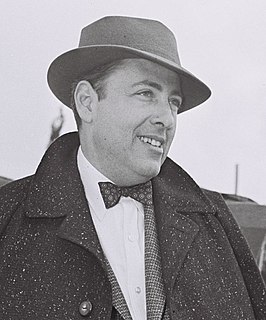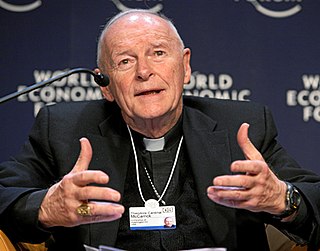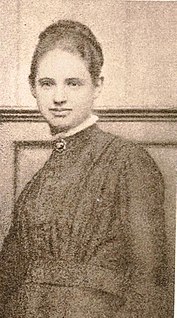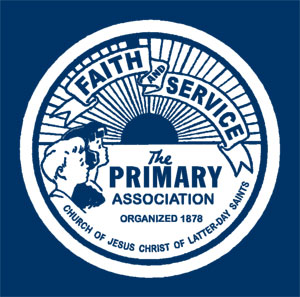A Quote by Herman Wouk
Let us fill a cup and drink to that most noble, ridiculous, laughable, sublime figure in our lives... The Young Man Who Was. Let us drink to his dreams, for they were rainbow-colored; to his appetites, for they were strong; to his blunders, for they were huge; to his pains for they were sharp; to his time for it was brief; and to his end, for it was to become one of us.
Related Quotes
Our Lord's miracles were all essential parts of His one consistent life. They were wrought as evidences not only of His power, but of His mercy. They were throughout moral in their character, and spiritual in the ends contemplated by them. They were in fact embodiments of His whole character; exemplars of His whole teaching, emblems of His whole mission.
If it were not for the Eucharist, if it were not for this marvelous manifestation of God's love, if it were not for this opportunity to place ourselves in the very real presence of God, if it were not for the sacrament that reminds us of His love, His suffering and His triumph, which indeed perpetuates for us His saving sacrifice on the cross, I am sure that I could never face the challenges of my life, my own weakness and sinfulness and my own need to reach out to the Living God.
Every man should write a brief history of his life: his parentage, his birth, his religion, when he was baptized and by whom, when ordained, what to, and by whom-give a brief sketch of all his missions and of all his official acts and the dealings of God with him. Then if he were to die and the historians wished to publish his history, they would have something to go by.
The whole life of Christ was a continual Passion; others die martyrs but Christ was born a martyr. He found a Golgotha even in Bethlehem, where he was born; for to his tenderness then the straws were almost as sharp as the thorns after, and the manger as uneasy at first as his cross at last. His birth and his death were but one continual act, and his Christmas day and his Good Friday are but the evening and morning of one and the same day. And as even his birth is his death, so every action and passage that manifests Christ to us is his birth, for Epiphany is manifestation.
The barbarians of Germany had felt, and still dreaded, the arms of the young Caesar; his soldiers were the companions of his victory; the grateful provincials enjoyed the blessings of his reign; but the favourites, who had opposed his elevation, were offended by his virtues; and they justly considered the friend of the people as the enemy of the court.
contrary to what many believed, my father was kind and tenderhearted, especially towards his family. His forbidding sternness seemed to melt into love, kindness, and easy familiarity when he was with us. Especially with me, his acknowledged successor to the throne, he would play lightheartedly. When we were alone together, he would sing me little songs; I don't remember his ever doing this in front of others, but when only the two of us were there, he would often sing to me.
That’s how Ptolemy imagined the disposition of his memories, his thoughts: they were still his, still in the range of his thinking, but they were, many and most of them, locked on the other side a closed door that he’s lost the key for. So his memory became like secrets held away from his own mind. But these secrets were noisy things; they babbled and muttered behind the door, and so if he listened closely he might catch a snatch of something he once knew well.
Such was the will of the Father that his Son, blessed and glorious, whom he gave to us, and who was born for us, should by his own blood, sacrifice, and oblation, offer himself on the altar of the cross, not for himself, by whom "all things were made," but for our sins, leaving us an example that we should follow his steps.
It is the consciousness of the threefold joy of the Lord, His joy in ransoming us, His joy in dwelling within us as our Saviour and Power for fruitbearing and His joy in possessing us, as His Bride and His delight; it is the consciousness of this joy which is our real strength. Our joy in Him may be a fluctuating thing: His joy in us knows no change.






































